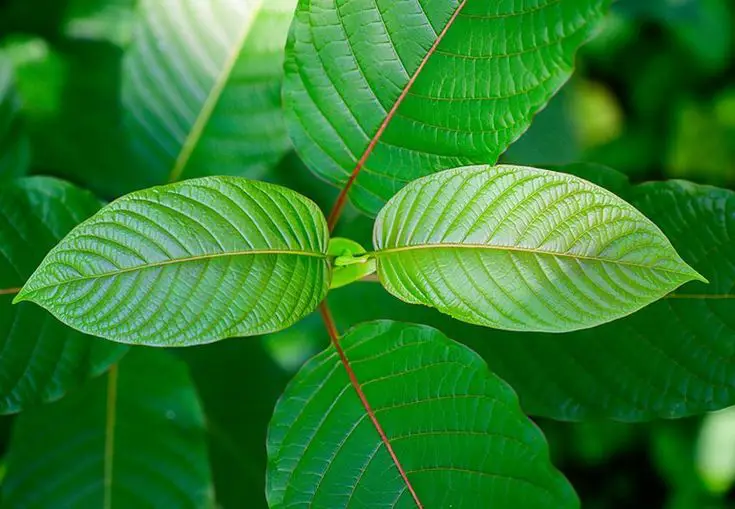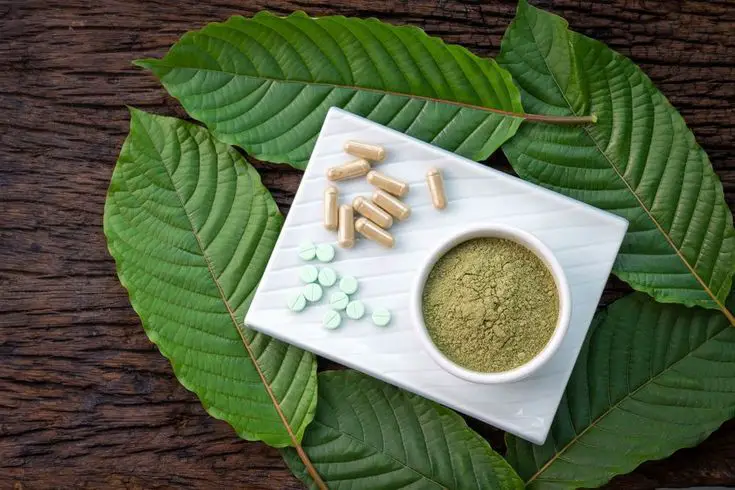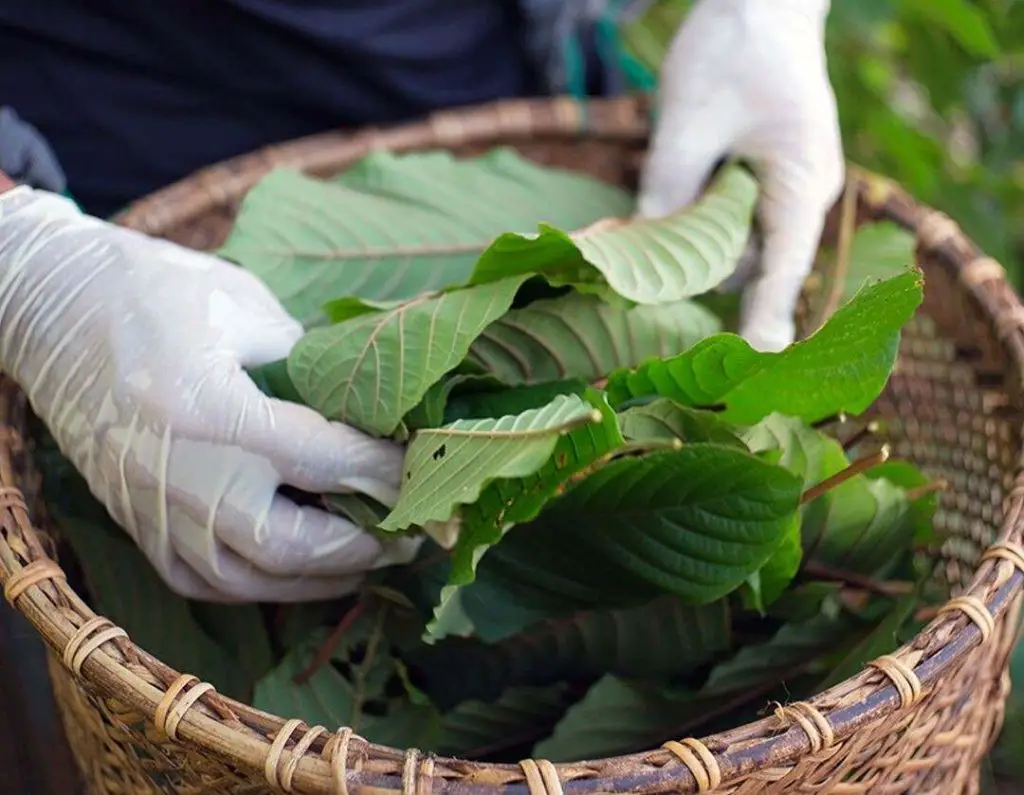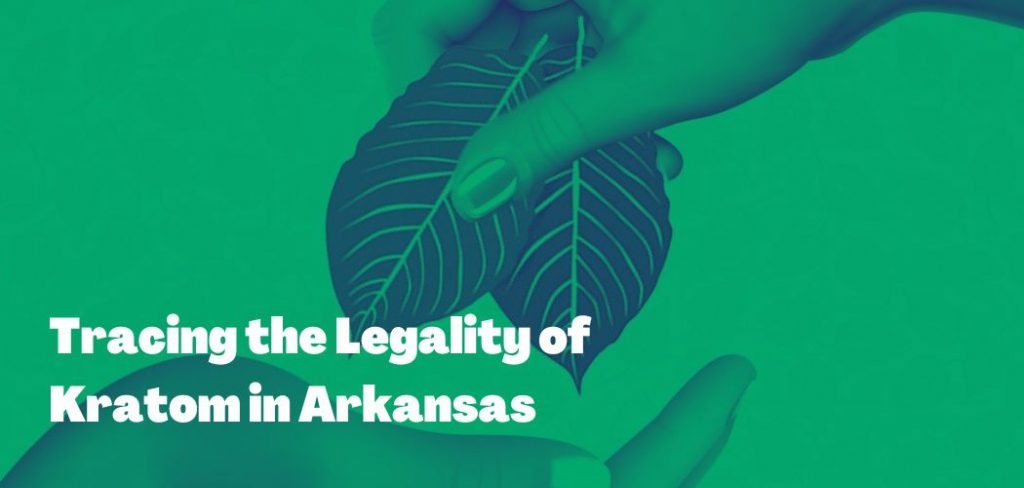Although legal at a federal level, kratom is banned for the 3 million residents of Arkansas.
Let’s explore the reasons this herbal supplement has created massive legal controversy in the country.
So what even is kratom?
Mitragyna speciosa is a species of tropical tree related to the coffee plant that is native to Southeastern countries including Indonesia, Malaysia, Thailand, the Philippines, and New Guinea.
A herb extracted from the leaves of this tree is consumed by the local population to treat several medical conditions and as part of religious rituals and ceremonies as well.
This herb, more commonly known as “kratom” has pain-relieving effects similar to an opioid like morphine.
Why does kratom work?
Studies have shown that kratom contains two psychoactive compounds, mitragynine and 7-
Hydroxymitragynine.
These compounds bind with opioid receptors and bring about pharmacological responses that have been observed to be like those produced by morphine.
What are the Effects of Kratom
The dosage of kratom heavily alters its effects.
In small doses, it acts as a mild stimulant.
However, in moderate doses, its effects are like that of an opioid, and if ingested in large quantities, results are associated with sedative-narcotic effects.
What are the uses of Kratom?
Kratom is most commonly used in Southeast Asia by local laborers and recovering opioid addicts to combat the symptoms of withdrawal.
Since the 19th century, kratom has been consumed by locals by chewing the edible leaves or using them to prepare tea.
Locals use kratom frequently as it has proved helpful in relieving fatigue and improving productivity especially for working people working long hours in humid and exhausting conditions.
In Thailand, its effects are used to treat morphine dependence.

Whereas in Malaysia, it is used as an opium substitute since it appears to be a mood enhancer that helps individuals suffering with withdrawals.
Such capabilities make kratom a viable option to be used as an antidepressant, a hunger suppressor, and to manage anxiety.
Studies have shown that kratom can lower corticosterone levels and elevated corticosterone levels are associated with depression.
The effects of kratom are also applied in the medicinal field to treat cough, diarrhea and chronic pain.
Among the different strains of kratom, the white vein, green vein, and red vein varieties were found to ease pain.
In fact, a compound discovered in kratom is at least 13 times more effective than morphine!
How did Kratom get to the US?
Kratom first reached the US via the soldiers returning home from the Vietnam War and also by the immigrants moving to America.
Despite kratom being in the US for a long time, it has only been a decade since it became popular and used far more frequently.
Today, nearly five million US citizens consume kratom!

It is easily available for purchase online and in head shops, vaping establishments, gas stations, and corner stores selling for around nine to twenty dollars.
However, the kratom industry yearly generates $1.13 billion in revenue according to the Botanical Education Alliance.
Is Kratom legal?
Even though the kratom industry is highly lucrative because of its high consumption, federal associations are vehemently opposed to kratom use in the US because of its adverse effects and limited scientific data supporting its positive attributes.
Since the mid-90s when the first cases highlighting the negative implication of mis-using kratom surfaced, the U.S. Drug Enforcement Administration (DEA) and The U.S. Food and Drug Administration (FDA) have been working on regulating kratom use.
On October 2017, FDA announced a public health advisory on kratom based on DEA’s 8-factor analysis and released a statement associating 36 plus deaths with consumption of adulterated kratom products.
Even facing backlash from American Kratom Association (AKA), federal associations continue to work on regulating and illegalizing kratom.
FDA states there is no legitimate medical use for kratom in the US and DEA declares it a drug and chemical of concern.
Currently, Kratom is banned in the following six US states: Alabama, Arkansas, Indiana, Rhode Island, Vermont, and Wisconsin.
The six states place kratom’s psychoactive compounds in Schedule I of their respective controlled substance schedules.
Is Kratom legal in Arkansas?
Recently Arkansas joined the list of states that outlawed kratom over concerns about the addictive nature of the herbal supplement.
In October 2015 a statewide ban was placed on kratom.
The consequences resulting from the ban include 20-30 years in prison depending on the quantity found in possession.

Since February 2016, the Natural State has classified kratom as a Schedule I drug which makes it a felony offense l to use, possess or sell the drug in any areas of the state including Little Rock, Hot Springs, Bentonville, and Fayetteville.
Kratom’s final nail in the coffin was a 2017 claim by a Springdale physician that three deaths in Arkansas were associated with kratom consumption which contains alkaloids (mitragynine and 7-hydroxy mitragynine) derived from opium.
This resulted in overturning any protests and finalizing laws that make kratom illegal in Arkansas.
